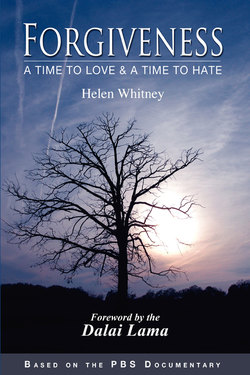Читать книгу Forgiveness - FastPencil Premiere - Страница 11
ОглавлениеForgiveness or its absence is often most acutely felt in our very last hours. Then the need to be forgiven or to forgive urgently presses in on us and can be a source of either comfort or anguish. For over a year, Merle Long lived in a hospice, unwilling to die. He had a secret hidden from his family that tormented him and that he longed to reveal: At the end of an exemplary life, he felt unforgiven, but he believed that if people knew about this they would think he was a terrible person and would judge him harshly. Or, worse, they would find some dark truth hidden even from himself.
“I was in the Infantry during World War II,” Merle finally admits. ”I was an executive officer. At the time we were deep in Germany, close to a little town called Nordhausen. It was a concentration camp with hundreds of rotting bodies; I can still smell them. We had a bunch of German prisoners that we wanted to get back to our camp when someone came up to me and told me that one of the prisoners had killed my lieutenant with a pitchfork. The prisoner was unarmed but I was so outraged that I shot him. Everyday I ask God to forgive me. It hurts so much. It’s not right to kill a fellow man, but I did. God forgive me, God forgive me…” Merle’s torment is in his tortured voice and his expression, his face contorted with long-held pain.
Long’s daughter-in-law, Deb, heard his confession. “He felt that what he did was so wrong that it was unforgiveable, for the man he killed was a person, he was somebody’s son, somebody’s father, he was a human being, despite having committed such atrocities.” His son, David, realized Merle had kept the story secret for over sixty years. “He yearns to forgive himself, it has haunted him for so long, and yet he struggles against it. I can’t help him through this. We’ve been over it so many times but he just keeps holding on. None of us need to forgive him for anything; he has to forgive himself.”
There appear to be as many types and meanings of forgiveness as there are definitions of love. It can be experienced as disengagement, separating ourselves from the person who injured us; as empowerment, where we become the forgiver and no longer the victim; as reconciliation, when a broken relationship is finally repaired; or as turning the other cheek, when we seek to transform the offender through an act of love. And whether we believe forgiveness comes from God or man, whether it comes with conditions or is freely given, what is indisputable is that its power is real, and that it is sweeping and even immodest in its reach.
Forgiveness has also migrated into the political realm, ready to heal individuals, corporations, churches, even nations. It has spread to the Internet where websites hawk forgiveness in a cyberworld that promises freedom from guilt but little personal accountability. It has become almost a daily ritual on daytime television throughout America with our new TV-host priests offering public absolution. Admissions and detailed confessions of guilt and shame are followed by doses of well-meant but inevitably superficial forgiveness.
“These TV shows are the agents of forgiveness in a popular culture, but they highlight a certain amount of confusion about what forgiveness means,” warns Lance Morrow, a professor of journalism. “Forgiveness is a profound transaction involving individuals and it really shouldn’t be turned into some sort of pop culture trick, it shouldn’t be blurred.”
Law professor Thane Rosenbaum agrees. “We live in a much more compressed, globalized world where everything is instantaneously known, which means we have an absence of private life, there is nowhere to hide, our shame is much more evident. Sadly, there is a kind of public enjoyment and even voyeurism in this new ritual of forgiveness.”
For Wilfred McClay, a cultural critic, this new therapeutic forgiveness is a troubling sign of the age we live in. He yearns for the time, “when forgiveness once again is concerned with the soul of the transgressor and the well-being of society, and not merely with the forgiver’s good health or psychological revenge.”
And so the questions persist: What is forgiveness? Why forgive? What are the roots of forgiveness? In the end, forgiveness knows no boundaries of time or place, and its origins appear to be embedded in our own psyches. Perhaps, at the deepest level, forgiveness is the memory of lost possibilities, the enormous presence of absence, an ache for what could have been but is no more.
